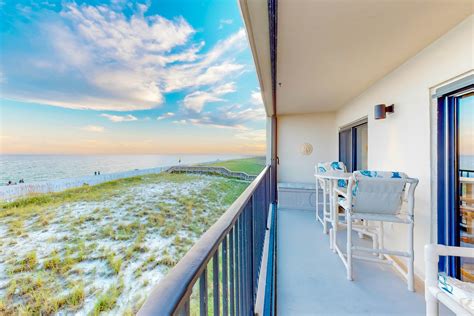Residential drug treatment offers individuals a structured and supportive environment to achieve lasting recovery from addiction. By providing 24/7 medical care, individualized treatment plans, and access to a wide range of therapies, these programs address both the physical and emotional aspects of addiction. In addition to therapy, residents benefit from group support, life skills training, and holistic therapies that promote overall well-being. With a focus on mental health, dual diagnosis, and relapse prevention strategies, residential treatment equips individuals with the tools needed for long-term success. Aftercare programs ensure that the support continues even after leaving the facility, fostering sustained recovery.
ujiyor.net will provide a detailed exploration of this topic.
1. Structured Environment
A structured environment is one of the core elements of residential drug treatment. This setting provides a safe and controlled space where individuals can focus entirely on their recovery without the distractions or triggers of the outside world. The daily routine in a residential facility is carefully designed to create consistency, offering a clear schedule of therapy sessions, group meetings, and recreational activities. This structure fosters accountability, helping individuals establish healthy habits that promote long-term recovery.
Within this environment, rules and guidelines are strictly enforced, which helps create a sense of stability and safety. Patients can engage in their treatment with confidence, knowing that they are in a space free from negative influences that may have contributed to their substance use. The constant support from staff and peers reinforces the idea that recovery is a process requiring time and dedication.
Additionally, a structured environment allows individuals to focus on self-reflection and personal growth. It eliminates the chaos and unpredictability of life outside the facility, making it easier to concentrate on addressing the root causes of addiction. This focused approach gives patients the mental clarity to develop coping mechanisms and strategies for maintaining sobriety, making the structured environment a foundational aspect of effective residential treatment.

2. 24/7 Medical Support
One of the key benefits of residential drug treatment is the availability of 24/7 medical support. This round-the-clock care ensures that individuals receive immediate medical attention if needed, particularly during the early stages of detoxification when withdrawal symptoms can be intense and potentially dangerous. Having access to constant medical supervision allows for a safer detox process, minimizing the risk of complications.
Beyond detox, the ongoing medical support plays a critical role in managing both physical and mental health conditions that may arise during treatment. Many individuals entering treatment may have co-occurring disorders or underlying health issues that need continuous monitoring. In a residential setting, medical professionals are always available to adjust treatment plans, administer medications, and provide support for any medical emergencies.
This level of care is essential for both physical and emotional well-being. It gives individuals peace of mind, knowing that they are in a safe environment where their health is a top priority. The presence of medical staff not only ensures safety but also promotes a sense of security, allowing patients to focus fully on their recovery journey without fear of medical complications interrupting their progress.

3. Individualized Treatment Plans
Individualized treatment plans are a cornerstone of residential drug treatment programs, tailored to meet the specific needs of each person. Upon entering the facility, patients undergo a comprehensive assessment that evaluates their physical health, mental well-being, substance use history, and any co-occurring disorders. This detailed evaluation forms the basis for creating a personalized treatment plan that addresses the unique challenges and goals of each individual.
Rather than following a one-size-fits-all approach, individualized plans ensure that every aspect of a person’s recovery journey is taken into account. This may include a combination of medical care, counseling, therapy sessions, and holistic treatments designed to target their specific triggers and struggles. Personalized plans also adapt over time, evolving as the patient progresses through recovery.
By addressing each person’s unique circumstances, individualized treatment enhances the effectiveness of the program. It ensures that patients receive the most appropriate and targeted care, increasing their chances of long-term success. This approach fosters a deeper understanding of addiction and empowers individuals to take control of their recovery process.

4. Therapy and Counseling Services
Therapy and counseling services are essential components of residential drug treatment, providing individuals with the tools and emotional support needed to address the root causes of addiction. These services are typically offered through a combination of one-on-one therapy sessions and group counseling, both of which play critical roles in the recovery process.
Individual therapy allows patients to work closely with a trained counselor or therapist to explore the personal factors that contributed to their substance use. This can include past trauma, mental health conditions, or relationship issues. Therapists help individuals develop coping strategies and behavioral changes to manage stress, triggers, and cravings, making it easier to maintain sobriety after leaving the facility.
Group counseling offers the chance for individuals to share their experiences in a supportive, peer-based setting. These sessions promote camaraderie, as patients relate to one another’s struggles and victories. Group dynamics encourage accountability, reduce feelings of isolation, and provide a sense of community during the recovery process.
In addition to traditional therapy models, many residential treatment programs offer specialized therapies, such as cognitive-behavioral therapy (CBT), dialectical behavior therapy (DBT), and trauma-focused therapies. These targeted approaches help individuals break the cycles of addiction by addressing specific mental health concerns. Through comprehensive therapy and counseling services, patients gain the insight and emotional tools necessary for long-term recovery.
5. Group Support and Peer Community
Group support and peer community are vital aspects of residential drug treatment, offering individuals a network of understanding and encouragement throughout their recovery journey. Being surrounded by others who share similar struggles creates a sense of belonging and reduces feelings of isolation, which is often a barrier to recovery.
In group therapy sessions, patients openly share their experiences, challenges, and progress with peers, fostering a sense of camaraderie. This environment encourages accountability, as individuals motivate and support each other in maintaining sobriety. It also provides opportunities to learn from the experiences of others, gaining valuable insights into coping strategies and personal growth.
Beyond formal therapy, the peer community extends to daily life within the facility. Residents often form strong bonds through shared activities, meals, and free time, reinforcing a positive, recovery-focused atmosphere. This peer-driven support system is crucial in helping individuals stay committed to their recovery, both during treatment and after they transition back into daily life.
6. Focus on Mental Health and Dual Diagnosis
In residential drug treatment, a strong emphasis is placed on mental health, particularly through the approach of dual diagnosis. Many individuals struggling with addiction also face co-occurring mental health disorders, such as depression, anxiety, or PTSD. These conditions can often fuel substance use, creating a cycle that is difficult to break without addressing both the addiction and the underlying mental health issues.
Dual diagnosis treatment ensures that individuals receive care for both their substance use disorder and any mental health conditions they may have. This comprehensive approach is essential for long-term recovery, as untreated mental health problems can lead to relapse. Therapists and medical professionals in residential facilities are trained to identify and treat these co-occurring disorders, creating a more holistic treatment plan.
By focusing on mental health, residential programs help patients develop healthier coping mechanisms for managing their emotions and stress. Therapy sessions may include cognitive-behavioral therapy (CBT), trauma-focused approaches, and other evidence-based treatments designed to address both addiction and mental health. This integrated care improves overall well-being, laying the foundation for lasting recovery.
7. Life Skills Training and Education
Life skills training and education are integral components of residential drug treatment, aimed at equipping individuals with practical skills for daily living and long-term success in recovery. These programs focus on teaching essential skills that help patients manage various aspects of their lives post-treatment, promoting independence and stability.
Life skills training often includes instruction on budgeting, time management, and effective communication. Patients learn how to create and maintain a structured routine, manage finances responsibly, and interact positively with others. These skills are crucial for reintegration into everyday life, as they help individuals build a foundation for a productive and fulfilling life beyond treatment.
Additionally, educational components may cover topics such as job readiness, including resume writing and interview techniques, and continuing education opportunities. This training prepares individuals to pursue employment or further their education, supporting their transition into a self-sufficient lifestyle.
Overall, life skills training not only enhances personal growth but also reduces the risk of relapse by fostering a sense of accomplishment and self-efficacy. By focusing on these practical aspects, residential treatment programs empower individuals to navigate life’s challenges and maintain their recovery in the long term.
8. Recreational and Holistic Therapies
Recreational and holistic therapies are key elements of residential drug treatment, providing additional avenues for healing and personal growth beyond traditional medical and therapeutic approaches. These therapies address the whole person—body, mind, and spirit—by integrating activities that promote overall well-being and reduce stress.
Recreational therapies include activities such as art therapy, music therapy, and physical exercise, which offer creative outlets and physical engagement. These activities help individuals express themselves, manage emotions, and improve their physical health, all of which are important for maintaining sobriety. Engaging in hobbies and interests also fosters a sense of accomplishment and joy, which can be particularly beneficial during recovery.
Holistic therapies often encompass practices such as yoga, meditation, and mindfulness. These approaches teach individuals techniques for managing stress and anxiety, promoting relaxation and mental clarity. By incorporating mindfulness and relaxation practices into daily routines, patients learn to better cope with cravings and emotional challenges.
These therapies not only enhance the recovery experience but also encourage a balanced lifestyle. They provide tools and techniques that individuals can use long after they leave the residential program, supporting sustained recovery and overall well-being. Through recreational and holistic therapies, patients build a stronger, more resilient foundation for their future.
9. Relapse Prevention Strategies
Relapse prevention strategies are a critical component of residential drug treatment, equipping individuals with the tools and techniques needed to maintain sobriety long after leaving the facility. These strategies focus on identifying and managing triggers, developing coping skills, and creating a robust support network.
Key aspects of relapse prevention include teaching patients to recognize and avoid situations or stressors that may lead to substance use. Therapy sessions often include role-playing and scenario planning to help individuals practice responses to potential triggers. Patients also learn to develop healthy coping mechanisms, such as stress management techniques and alternative activities that can replace substance use.
Additionally, residential programs emphasize the importance of building a supportive network of family, friends, and peers who encourage and sustain recovery efforts. Aftercare plans often include continued counseling and support groups to help individuals stay connected and accountable.
By incorporating these strategies into the treatment plan, individuals are better prepared to handle challenges and maintain their recovery, reducing the likelihood of relapse and p
10. Aftercare and Continued Support Programs
Aftercare and continued support programs are essential for ensuring long-term recovery following residential drug treatment. These programs are designed to help individuals transition smoothly from the structured environment of the facility back into their daily lives while maintaining their sobriety.
Aftercare typically includes ongoing therapy sessions, such as individual counseling or group therapy, which provide continued guidance and support. These sessions help individuals address any emerging challenges, reinforce coping strategies, and offer a space to share experiences with others in recovery.
Additionally, many programs offer support groups and community resources that facilitate peer connections and provide a sense of belonging. These groups often focus on various aspects of recovery, such as job readiness, family dynamics, and relapse prevention, ensuring that individuals have access to a wide range of support.
Continued support programs also include regular follow-up with treatment providers to monitor progress and make necessary adjustments to the recovery plan. This ongoing relationship helps individuals stay accountable and motivated.
By integrating aftercare and continued support into the recovery process, individuals are better equipped to handle the complexities of life outside the treatment facility, fostering a sustainable path to long-term sobriety and well-being.
Residential drug treatment offers a comprehensive approach to overcoming addiction, combining structured environments, 24/7 medical support, and individualized care to address the unique needs of each person. With a focus on mental health, life skills training, and both recreational and holistic therapies, individuals are prepared for lasting recovery. The emphasis on relapse prevention and continued support ensures that patients have the tools and resources necessary for a successful transition back to everyday life. Through these elements, residential treatment provides a solid foundation for sustaine
ujiyor.net

